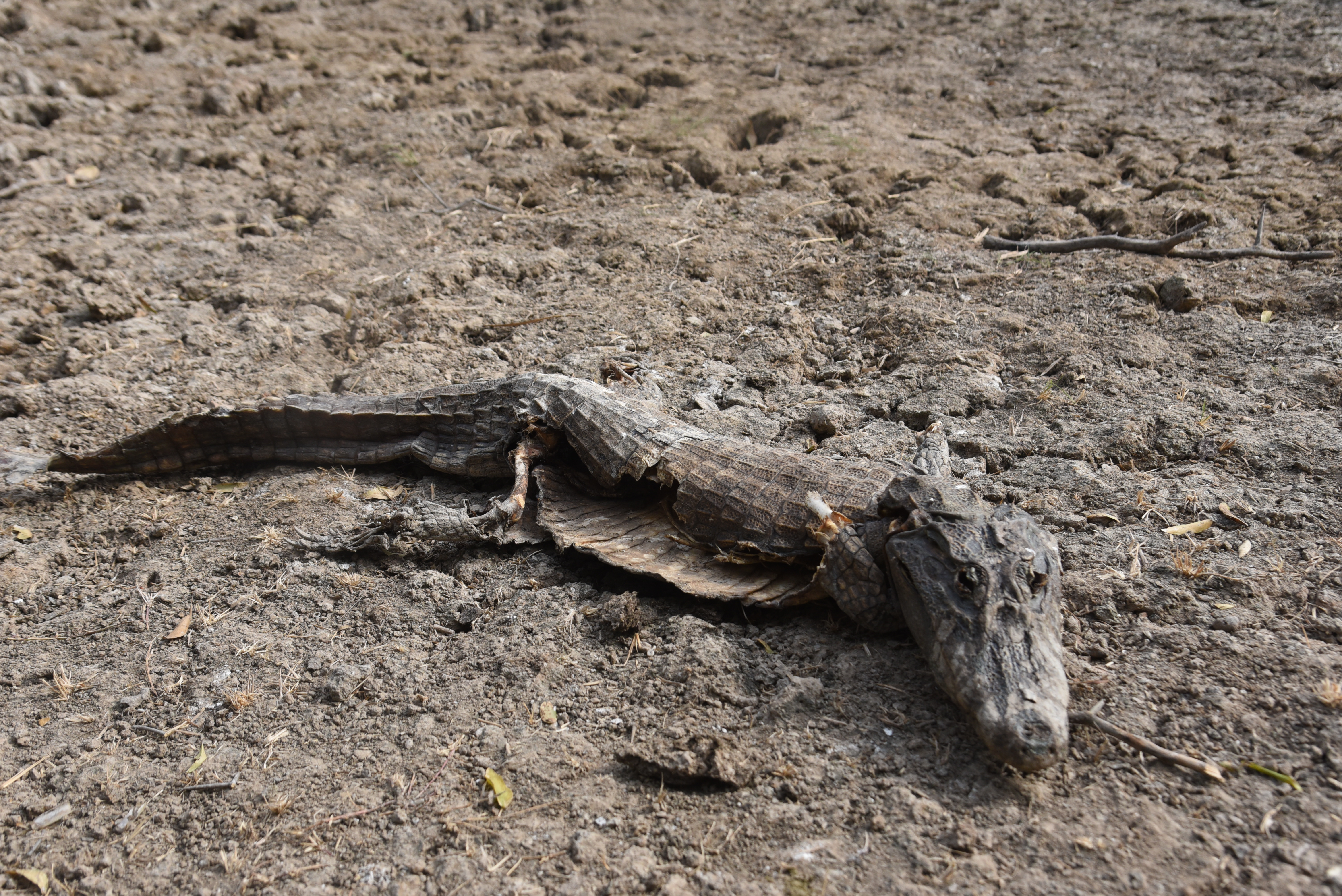
the area is facing its worst drought in almost two decades. / AFP PHOTO /
GENERAL DIAZ, Paraguay (AFP) — A drought in northern Paraguay has driven thousands of thirsty alligators to crowd around lakes and wells, scaring off cattle from the dwindling water sources, environmentalists and locals say.
Parched leathery corpses of the reptiles lie on the cracked earth near the Pilcomayo River where the borders of Paraguay, Argentina and Bolivia meet.
The Chaco region is suffering its worst drought in 19 years, Public Works Minister Ramon Jimenez Gaona said recently.
Trying to survive, the reptiles are on the move.
“When they find themselves in very dry conditions they tend to walk long distances in the wood in search of food,” said Aida Luz Aquino, a biologist with the Paraguay branch of the World Wildlife Fund.
The alligators are scaring off local residents and livestock.
“Cattle cannot approach to drink for fear of being attacked by alligators,” said Alcides Gonzalez, a local herdsman.
Dozens of environmentalists have come to the region to try to help.
The head of the state environment department Rolando De Barros insisted “there are different parts of the river where there is still a lot of water.”
But Aquino rejected suggestions that the alligators be rounded up and taken away from areas where they pose a threat.
“It is not advisable to move alligators from one place to another,” she said.
“Some of them have already gone back into the woods. Others are waiting by the water to save energy and stress. Moving them would stress them more.”
The Pilcomayo’s waters usually diminish at this time of year.
But this time authorities have been accused of failing to dredge sediment from the riverbed which has blocked up its course in places.
President Horacio Cartes said it was a “critical situation.” But he accused the media of exaggerating a natural phenomenon “that happens all the time.”
Locals have been drilling new wells and leaving meat on the riverbanks to feed the alligators.
“We prefer to do that than see our animals devoured,” Gonzalez told AFP.
© 1994-2016 Agence France-Presse







